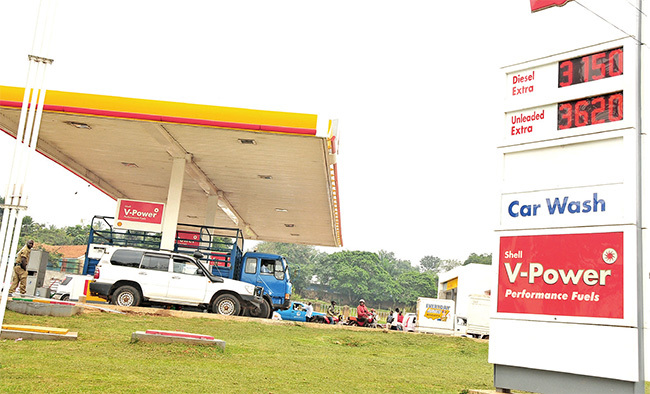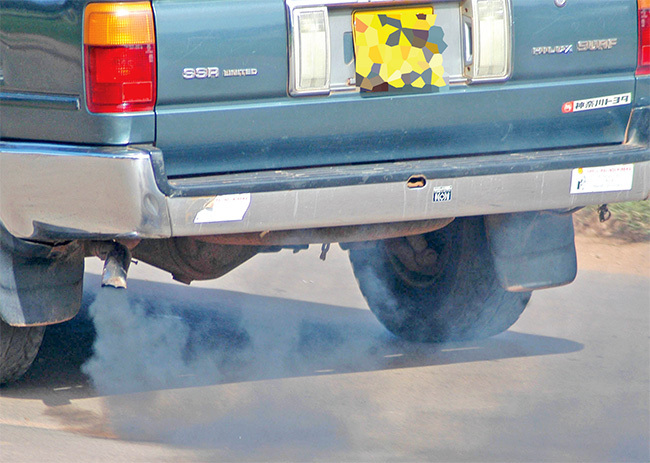Uganda is not a mere spectator in corona-oil price war
If it was not for corona, the oil price war would signal ‘party after party’ time for aviation operators as fuel is a major component of their costs.
OIL PRICES
By Joachim Buwembo
If there is an international institutional victim of coronavirus, it is the hitherto powerful Organisation of Petroleum Exporting Countries (OPEC).
This comes after its members' failure to agree on cutting supply to counter the falling oil demand occasioned by economic slowdown and national shut-downs caused by the coronavirus outbreak.
OPEC effectively collapsed just as it was turning sixty years since its formation and rise into the most feared interstate cartel.
Whether the Russia-Saudi rivalry was principally to blame for OPEC's collapse is for petroleum industry analysts to judge. What is certain is that the world oil markets simply could not withstand the double tragedy of oversupply, combined with shrunken demand.
As Saudi Arabia upped its daily supply with an additional over two million barrels, apparently to punish Russia that had refused to support the Saudi pleas to cut supply, the other producers also joined the race. They began to empty their wells onto the market, fuelling the full-scale oil price war.
Overnight, the price started tumbling and in a matter of days had fallen more than half to under $30 a barrel. Now all that the oil-producing nations can achieve by supplying more oil is to reduce their losses by a few percentage points.
But as our people say, ‘the (slaughtered) cow's tears bring joy to the (boneloving) dog', the operators of VLCCs (very large crude carriers) started dancing with joy as they increased their charges by six times, but can still not meet the demand for their overbooked ships.
 Fuel pump prices have not fallen at petrol stations because they are selling old stock
Fuel pump prices have not fallen at petrol stations because they are selling old stock
What is Uganda doing?
So, what is Uganda, which spends $1.3b annually on petroleum imports, doing in reaction to all this? On the face of it, nothing, but strategically, a lot is going on. To the layman's eye, it is disappointing that fuel pump prices have not fallen. Journalists have not even bothered to ask industry players about this, because they know the answer they would be given — that they are still selling old stock.
(Suppose the prices had doubled instead, would the pump price remain indefinitely constant because of old stock?). While the industry problem is an oversupply of cheap oil, Ugandans are more likely to hear cries of low stocks of reserves in some tanks at Jinja and rising pump prices. We pray though that it will not come to that. But what should be happening at a strategic level?
A lot is being done by the Government. We can start by looking at the bigger boys out there. In big oil economies, several things are expected to happen. First of all, the shale petroleum initiatives are in big trouble. When the barrel prices go below $50, there is no point even talking of shale. It is now below $30.
Secondly, as more countries declare a shutdown because of coronavirus (shutdowns which are expected last three or four months) demand for fuel for vehicles continues to die out. And as international travel also gets hit, airlines are facing closure and aviation fuel demand also dies out.
If it was not for corona, the oil price war would signal ‘party after party' time for aviation operators as fuel is a major component of their costs.
But possibly, the strategic thinkers' biggest universally shared worry from the collapse of fuel prices is the slowdown it is expected to inflict on the move towards clean energy, which means a loss of the recent gains in reducing carbon emissions, thus deepening the climate change crisis. With oil costing so little, why would business decision-makers invest much money in clean energy?
The pace of the big strides that have been registered in recent years in solar technology and electrification of public transport and transport infrastructure is bound to be affected, where decisions are based on profitability. Let us go to a country under total corona lockdown — Italy.
A few months back, top Italian professor of New Energy Technologies and chemical researcher with the Italian National Research Centre made some interesting public remarks on the state and future of transport technologies.
Discussing the transition to renewable sources of power, Prof. Mario Pagliaro particularly and strongly advised European countries to adopt the Chinese model of subsidies and presence of the state in the economy.
He went ahead to observe, with confidence, that the diesel-powered bus will be the first internal combustion engine (ICE) vehicle to die as the world transits to modern energy technologies. Yes, the diesel bus is dying and will die out before ICE cars, even before the bodaboda.
Our people say that when they are advising the chief's son, the workman's son had better also listen — like tap the conversation, as the millennials say. Pagliaro elaborated to his fellow Europeans how the still-expensive technology can be faster rolled out; with already half a million electric buses operational worldwide.
However, Ugandans can proudly say even before gurus such as Pagliaro spelt it to their own people, our government had already seen that the future of public transport is in state-involved modern technologies and started catalysing the automotive industry in that direction.
It is just the old disease of operating in silos that has seen another government arm push for deploying thousands of diesel buses. Let us hope that the fleet will still be serviceable after its foreign manufacturers phase out making ICES.
Pagliaro also says solar energy production is improving all the time and cites GTT Torino, a public transporter that has deployed over 20 buses, relying on a photovoltaic system that produces more electricity than the buses need and ends up supplying the excess to the national grid.
 As the world transitions to renewable energy, diesel-powered vehicles will die out
As the world transitions to renewable energy, diesel-powered vehicles will die out
How is Africa preparing itself?
Uganda is not the only African government thinking beyond ageing technologies such as dangerous petroleum-based transport as a way forward. The African Development Bank recently assembled energy and ICT leaders (MTN was part of the brainstorm in Cote d'Ivoire) and the participants agreed that the fourth industrial revolution presents Africa not just the occasion to compete with the developed world but to actually beat them.
We should also be watching Ethiopia's energy-based initiatives in the past decade. Not only did they push ahead with the grand renaissance dam for producing more electricity that they might need for decades, but they decided to build the light electric railway in Addis Ababa, taking tens of thousands of carbon-emitting vehicles off the city roads.
So, things are already happening and while the corona-induced economic slowdown is making petrol incredibly cheaper and delaying the transition to clean energy, governments, such as Uganda and Ethiopia, must be commended for seeing ahead rather than just reacting automatically to crises.
The dirty fuels may persist for a couple more decades, but their time is coming and it will find our children and bazzukulu (grandchildren) with the foundation for a clean, automotive industry already laid.
Solar-powered Prof. Mario Pagliaro, a top Italian professor of New Energy Technologies says solar energy production is improving all the time and cites GTT Torino, a public transporter that has deployed over 20 buses relying on a photovoltaic system
 Solar-powered: Prof. Mario Pagliaro, a top Italian professor of New Energy Technologies says solar energy production is improving all the time and cites GTT Torino, a public transporter that has deployed over 20
Solar-powered: Prof. Mario Pagliaro, a top Italian professor of New Energy Technologies says solar energy production is improving all the time and cites GTT Torino, a public transporter that has deployed over 20